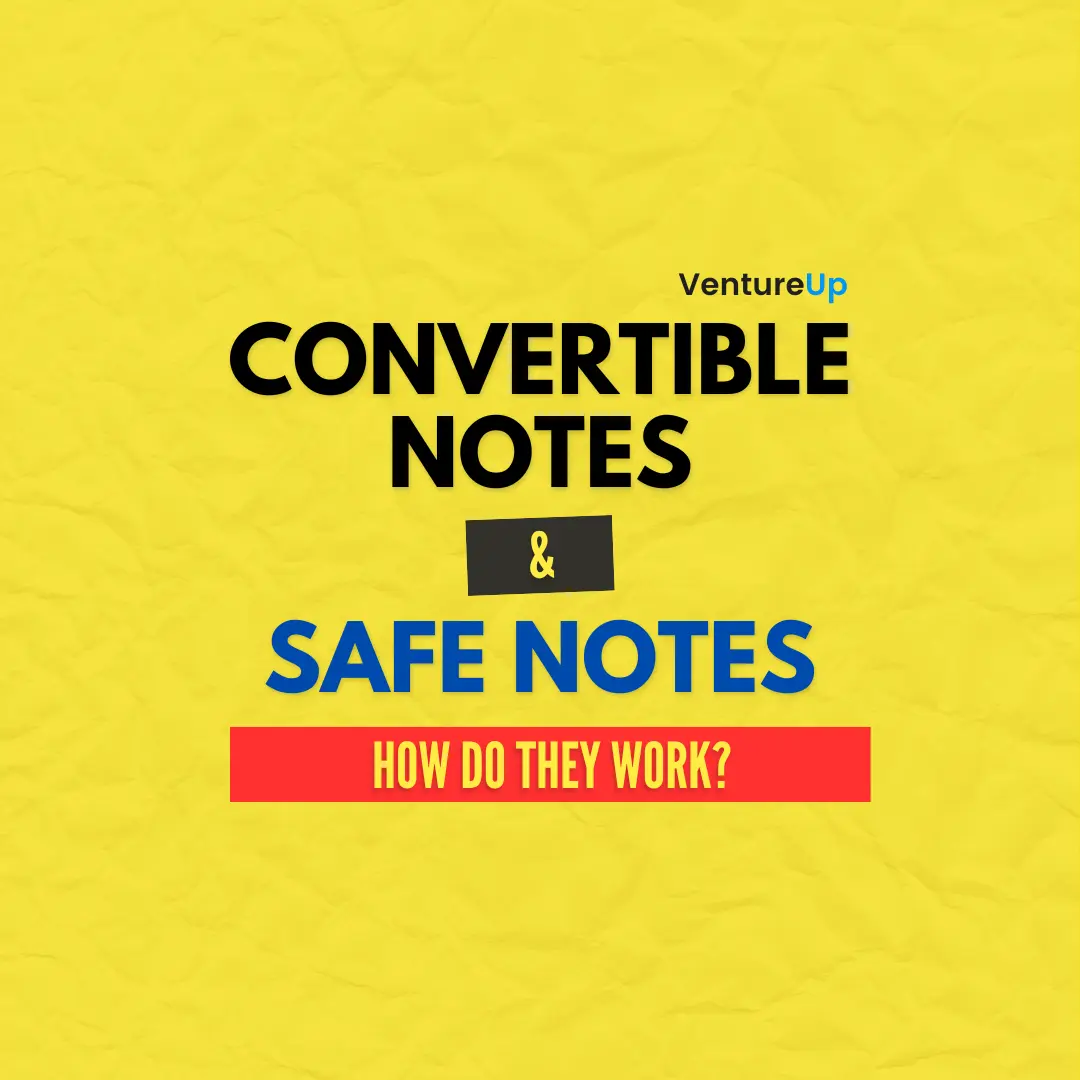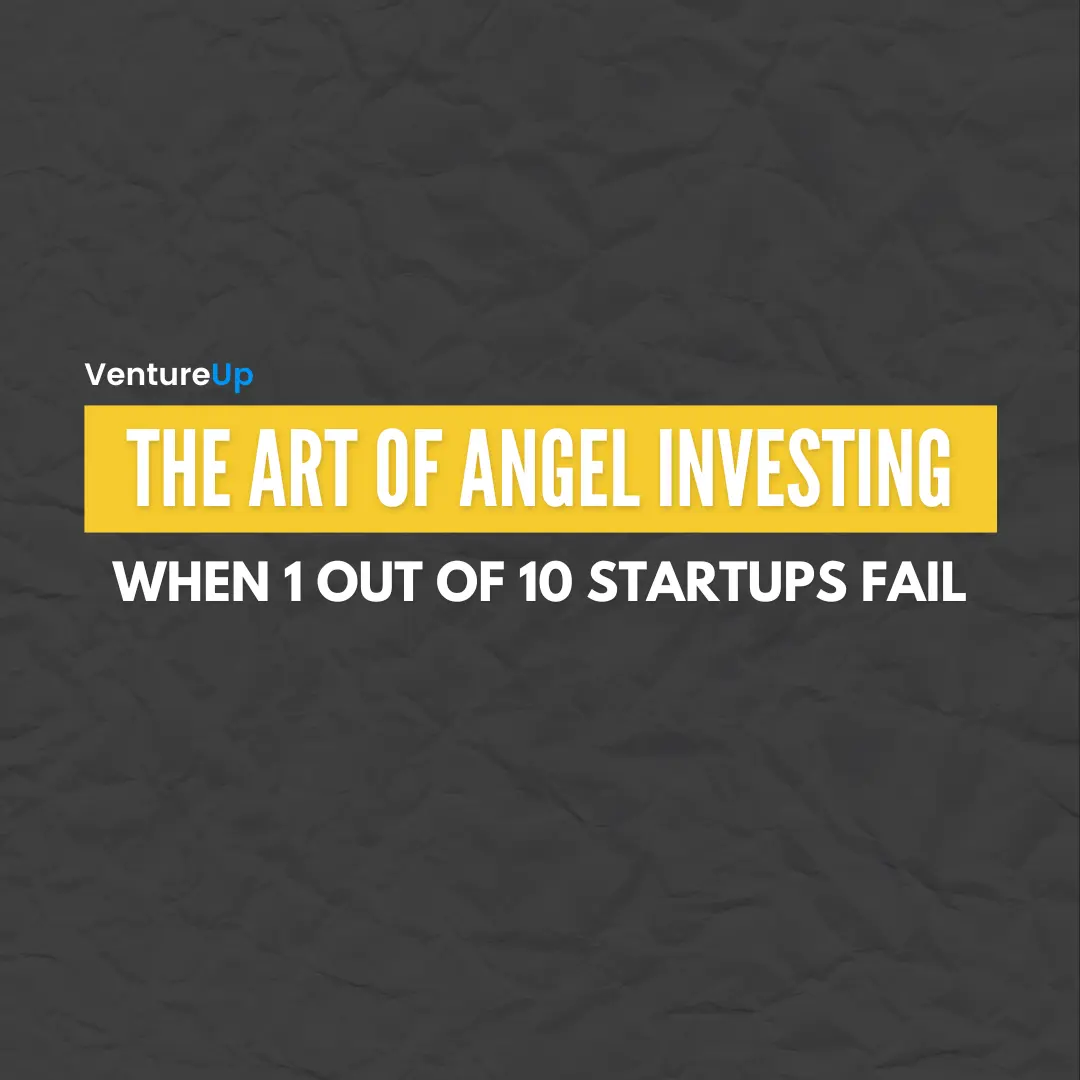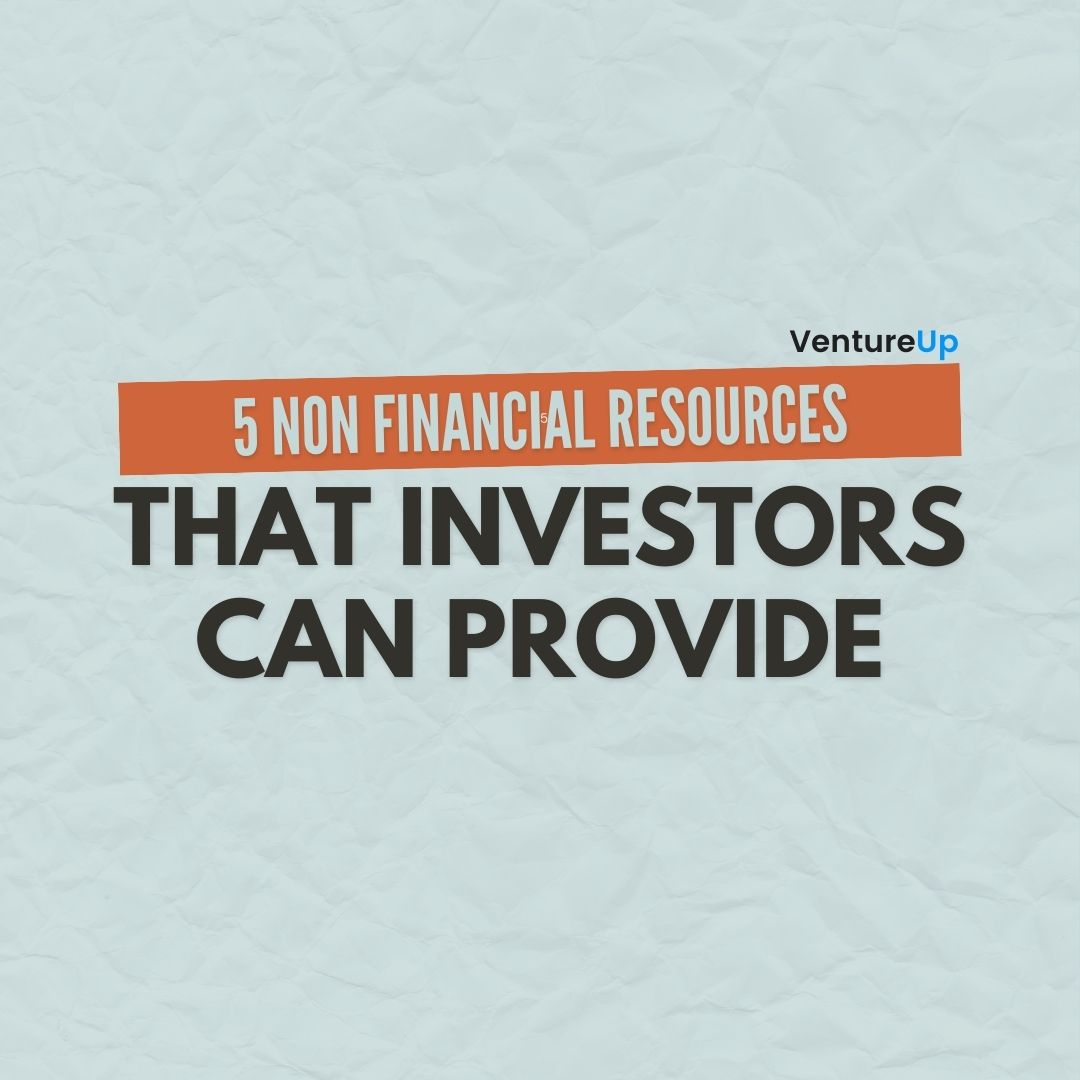Convertible notes and SAFE (Simple Agreement for Future Equity) notes are both common forms of financing used by startups, particularly in early-stage funding rounds. They offer a way for startups to raise capital without having to immediately determine the valuation of the company, which can be challenging in the early stages when the company's value is uncertain.
Convertible notes
Convertible notes are essentially short-term debt that converts into equity at a later date, typically during a subsequent financing round. They specify the loan amount, interest rate (if any), maturity date, and conversion terms. When a qualifying event occurs, such as a future equity financing round, the note converts into equity at a predetermined conversion price or discount. Convertible notes are favoured for their simplicity and quick setup, delaying valuation discussions until later rounds.
Before proceeding with convertible notes, it's crucial to grasp several key terms integral to the agreement:
- Conversion discount: This denotes the discounted rate at which convertible note holders can exchange their notes for equity shares, typically ranging between 15-25% below the share price in the subsequent funding round. A higher discount is preferable for investors.
- Valuation cap: This sets a maximum valuation used to determine the conversion price for the notes, safeguarding note holders by ensuring they receive equity shares at a valuation no higher than the cap amount. A lower valuation cap translates to a greater number of shares for investors.
- Interest rate: Comparable to the interest charged on loans, the interest rate on convertible notes is typically modest, typically between 5-8% annually. The startup issuing the note pays this interest to note holders on the principal amount.
- Maturity date: This marks the deadline for convertible note debt repayment. On this date, the note either converts to equity shares or the startup repays the principal alongside any accrued interest.
- Conversion price: The price per share required to convert convertible notes into equity shares. It's calculated as the lesser of the next funding round's share price minus the conversion discount or the valuation cap divided by the outstanding share count.
- Next equity financing round: This refers to the startup's subsequent sale of preferred stock to raise funds, dictating the conversion price for any convertible notes.
Understanding these terms and their implications on potential investments is extremely important. Don’t shy away from asking questions and gaining clarity regarding how these provisions may impact your financing before committing.
Here are a few examples of well-known companies that used convertible notes in their early stages:
- Airbnb - Airbnb, the renowned short-term rental platform, secured $600,000 in funding back in 2009 through a convertible note provided by Y Combinator and Sequoia Capital. This note later converted into equity at a 20% discount during Airbnb's Series A round, which amounted to $7.2 million and was led by Greylock Partners approximately a year later.
- Dropbox - Similarly, Dropbox, the file hosting service, raised $1.2 million in 2007 through a convertible note from Sequoia Capital. When Dropbox pursued its Series A funding round in 2008, Sequoia's note converted into equity at a 20% discount, despite Dropbox's valuation being only $46 million at the time.
- Uber - Uber also utilized convertible notes, raising $1.6 million in 2010 through this financing method. Led by First Round Capital and Lowercase Capital, the note converted into equity during subsequent funding rounds, aiding Uber's rapid expansion and transformative impact on the transportation industry.
- SpaceX - SpaceX utilized a convertible debt offering in 2015 to secure $250 million in funding. This strategic financing approach enabled SpaceX to pursue its ambitious plans without diminishing existing equity.
- Spotify - Spotify, the music streaming service, opted for a convertible debt offering in 2016 to raise $1 billion in funding. This financial maneuver empowered Spotify to retain control over its valuation and postpone the decision of going public.
SAFE notes
Y Combinator, the renowned startup accelerator, introduced the SAFE (Simple Agreement for Future Equity) as a simpler alternative to convertible notes. Then 100X.VC introduced it in India for the first time in 2019. SAFE notes operate as agreements between investors and startups, offering capital in exchange for future equity. Unlike convertible notes, SAFE notes do not involve debt or interest. They specify the investment amount, any discount or valuation cap for future equity conversion, and other terms. When a qualifying financing event occurs, the SAFE note converts into equity, typically at a discount to the valuation of that round or a predetermined valuation cap. SAFE notes are preferred for their simplicity and founder-friendly terms, lacking the complexities of debt instruments.
There are two key components of a SAFE note: the valuation cap and the discount rate.
Valuation Cap
The valuation cap establishes the highest valuation at which the investor's investment converts into equity, safeguarding them from excessive dilution in subsequent financing rounds.
Although not mandatory for SAFE Notes, valuation caps are frequently included. Similar to convertible notes, the valuation cap determines a maximum conversion price for cash to convert into shares, often becoming a focal point in investor negotiations to secure a more favorable stake upon conversion.
Discount rate
Meanwhile, the conversion discount permits the investor's investment to convert into equity at a reduced price compared to new investors in future financing rounds, serving as an incentive for early-stage investment and compensating for the heightened risk involved.
A few examples of well-known companies that used SAFE notes to raise funds in their early stages:
- Stripe - Stripe, a global technology company that builds economic infrastructure for the internet, utilized SAFE notes in its early fundraising rounds. The funds helped Stripe expand its payment processing platform and grow its customer base.
- Thumbtack - Thumbtack, an online marketplace for local services, raised capital through SAFE notes during its early stages. This financing enabled Thumbtack to enhance its platform and improve its service offerings.
- Quora - Quora, a question-and-answer website, secured funding using SAFE notes in its early fundraising efforts. The funds helped Quora develop its platform and attract more users to its community-driven platform.
- GitLab - GitLab, a web-based DevOps lifecycle tool that provides a single application for the entire software development lifecycle, raised capital through SAFE notes during its early stages. This financing allowed GitLab to expand its platform and improve its collaboration tools for developers.
- Coinbase - Coinbase, a cryptocurrency exchange platform, also utilized SAFE notes in its early fundraising rounds. This funding helped Coinbase develop its platform and grow its user base in the emerging cryptocurrency market.
Both Convertible and SAFE notes carry risks for investors, primarily if the company fails to raise subsequent financing or achieve a liquidity event before the maturity or conversion date. In such cases, investors may not receive returns on their investments. Despite risks, these instruments provide flexibility for startups and investors alike, enabling funding without immediate valuation determinations. The choice between the two often depends on the preferences of the parties involved and the specific needs of the startup.
In Conclusion:
| Feature | SAFE Notes | Convertible Notes |
|---|---|---|
| Definition | A financial instrument that allows investors to purchase shares in a future priced round, usually without interest or a maturity date. | A type of debt that converts into equity, usually at a later financing round, under specific conditions. |
| Interest | No interest. | Accrues interest over time until conversion. |
| Maturity Date | No maturity date; remains outstanding until a triggering event occurs. | Has a specified maturity date by which it must either convert or be repaid. |
| Conversion Triggers | Typically converts during a future financing round, sale, or IPO. | Can convert during a financing round, at maturity, or during a sale/IPO, often at the discretion of the holder. |
| Valuation Cap and Discount | May include a valuation cap and/or discount to future priced rounds. | Commonly includes both a valuation cap and a discount to reward early investors. |
| Complexity and Negotiation | Generally simpler and involves less negotiation, as it is standardized. | More complex due to the negotiation of interest rates, maturity dates, and conversion mechanics. |
| Early Investment Incentives | Provides early investors with future equity at potentially favorable terms. | Offers incentives like interest and discounts on conversion, plus the potential for repayment if not converted. |
| Legal Structure | Not a debt instrument; it's an agreement to issue equity under certain conditions. | Considered a form of debt until converted into equity. |
| Use by Startups | Preferred by startups for its simplicity and flexibility, especially in early funding stages. | Used by startups looking for more structured early-stage financing with clear terms for conversion and repayment. |



